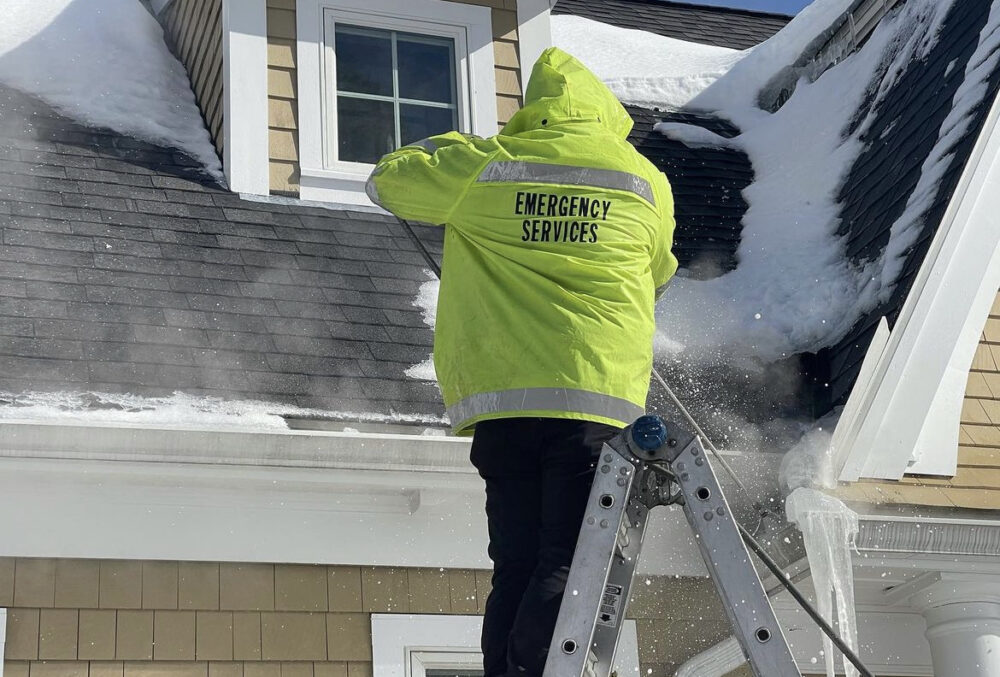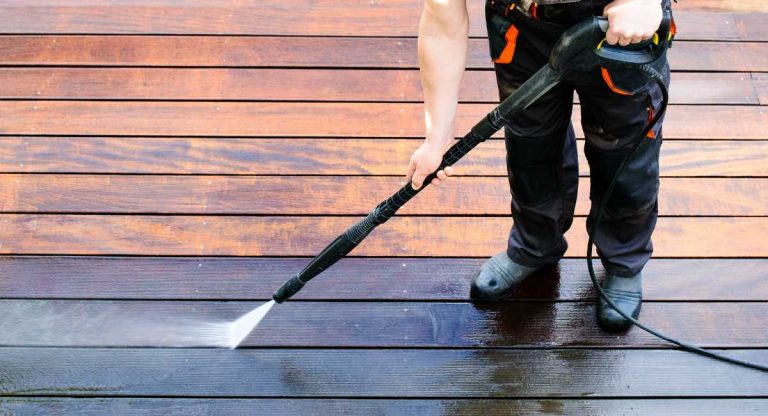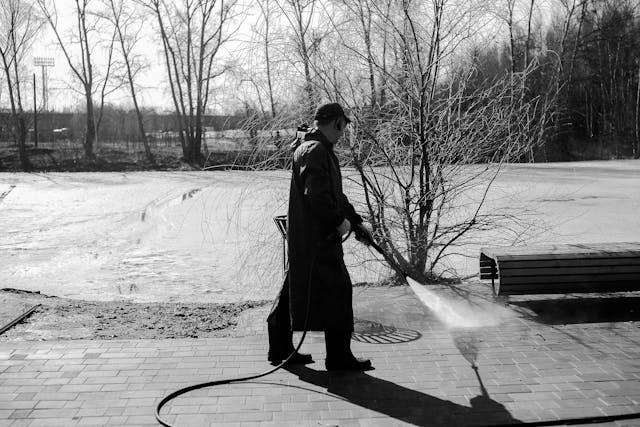
When winter rolls in and snow begins to pile up, property owners face the age-old question: What’s the best way to clear ice and snow from hard surfaces? While shovels, plows, and de-icing salts are common tools, more people are asking whether power washers can be used for snow and ice removal — and if so, is it safe or even effective?
Let’s break down when (and if) you should hire a power washing company for ice or snow removal, what to consider, and what the potential risks and benefits are. 🧊🚿
🧼 Can Power Washing Be Used to Remove Ice and Snow?
The answer is: Yes, but only under specific conditions — and with the right equipment. Some professional power washing companies offer hot water power washing, which uses water heated up to 200°F or more to melt away snow and ice from:
✅ Concrete driveways
✅ Walkways and stairs
✅ Loading docks
✅ Parking lots and curbs
✅ Commercial entryways
This method is most effective in cases where thin layers of ice or compacted snow need to be removed quickly and cleanly — often when plowing isn’t an option or when de-icing chemicals can’t be used.
🔥 Hot Water vs. Cold Water Pressure Washing in Winter
It’s critical to understand the difference:
- Cold Water Pressure Washing: Not suitable for ice removal. It can actually cause more harm than good by freezing over surfaces or deepening cracks.
- Hot Water Pressure Washing: Highly effective for melting ice, especially when paired with surface-safe detergents or traction-enhancing treatments.
Hiring a power washing company that uses commercial-grade hot water systems can help you clear up dangerous ice patches without damaging the surface underneath. 🔥🧊
Browse Amazon Here For Top Rated Power Washers And Accessories
🧱 Surfaces That Can (and Can’t) Be Safely Treated
Not all materials can withstand the temperature shift that hot water brings.
Good Candidates:
✅ Concrete
✅ Brick
✅ Stone
✅ Steel loading docks or ramps
Poor Candidates:
🚫 Wood decking
🚫 Older or cracked concrete
🚫 Decorative tiles or stamped overlays
🚫 Asphalt (can soften under high heat)
The key is to hire a contractor who knows how to adjust pressure and temperature based on the surface type to avoid damage or rapid expansion that can lead to cracking. A pro should always inspect the area before beginning work. 🔍
⚠️ Risks of Using Power Washing for Snow and Ice
Before hiring a company for this type of job, it’s important to know the potential downsides:
- Thermal Shock: Pouring hot water on frozen surfaces can cause them to expand and crack if done improperly.
- Refreezing: Melted ice can quickly turn back into dangerous black ice if not properly drained or dried — especially in freezing temperatures.
- Slip Hazards: While removing snow helps, a wet surface in winter weather can become more dangerous if not treated correctly.
A professional power washing company should come prepared with de-icing agents, brooms, or drying tools to manage the meltwater safely.
🧯 When Power Washing for Ice Removal Makes Sense
There are a few situations where hiring a hot water power washing service is not just effective — it’s the best option:
- Post-storm cleanup: Especially after freezing rain when a thin ice glaze coats walkways.
- Loading docks & commercial areas: Where plows can’t safely reach or maneuver.
- High-traffic business entryways: For cosmetic appeal and safety compliance.
- Event spaces: Outdoor venues needing quick cleanup before a gathering or scheduled use.
- Graffiti removal in winter: When tags or vandalism must be cleaned despite cold temps.
These jobs require specialized gear, trained technicians, and careful runoff management. ❄️🧹
🛠️ Questions to Ask Before Hiring for Winter Work
Not all power washers are equipped or experienced for winter jobs. Before you hire, ask:
- “Do you use hot water power washing for snow/ice removal?”
- “How do you manage meltwater to avoid refreezing?”
- “Can you treat the area with sand or de-icing solution after cleaning?”
- “Do you carry liability insurance for winter-specific work?”
- “Have you worked on similar properties in cold weather?”
📋 A good company will have protocols for runoff, water collection, and safe re-entry times for pedestrians or vehicles.
🌿 Eco Concerns: What Happens to the Melt?
Runoff from melting ice and snow can contain road salts, oils, and chemicals. That’s why water reclamation is key. A high-quality power washing company should use containment methods or vacuum systems that direct meltwater to proper drainage — instead of contaminating the landscape or nearby storm drains. 🌎
Some municipalities even require this as part of their environmental code, so it’s another reason to go with a professional who knows local rules.
Browse Amazon Here For Eco-Friendly Pressure Washing Detergents
💰 How Much Does It Cost?
Pricing varies based on:
- Square footage
- Level of compaction or thickness
- Type of surface
- Equipment needs (e.g., hot water, reclaim systems)
- Weather conditions on the day of service
Expect to pay a premium over standard power washing, given the added equipment, risk, and environmental concerns. For commercial lots or heavy buildup, hourly rates can range from $150 to $350 per hour, depending on region and complexity. 💵
✅ Final Verdict: Is It Worth Hiring a Power Washer for Snow and Ice?
If you need precision removal, are dealing with commercial zones, or require quick turnaround for safety reasons, then yes — hot water power washing is a smart, effective solution when done professionally. 💡
However, it’s not a DIY job, and it’s not a replacement for standard snow removal tools. It’s a specialized service for specific scenarios.
💡 Final Tips
- Always check local laws regarding runoff
- Confirm the company has winter-weather insurance coverage
- Schedule early during busy winter months
- Get written estimates that cover both removal and aftercare
With the right approach, hiring a power washer in winter can help you stay safe, stay compliant, and stay ahead of the next storm. ❄️💪
Browse Amazon Here For Top Rated Power Washers And Accessories






